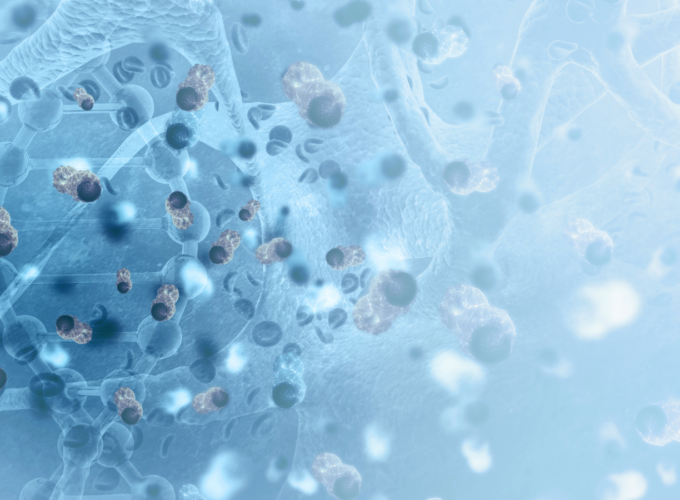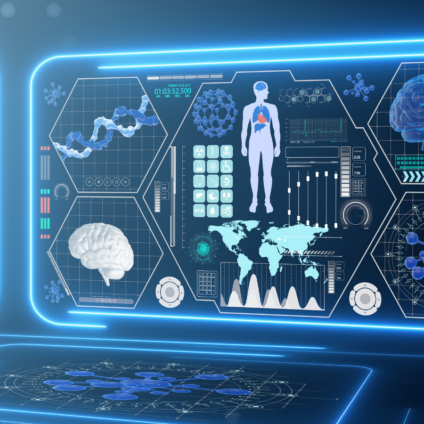Action Collaborative on Translating Emerging Science, Technology, and Innovation in Health and Medicine
Breakthroughs in biomedical research, data science, and technology are revolutionizing health and medicine—unlocking immense potential while challenging the scientific community to navigate critical challenges related to access, cost, ethics, and broader societal impacts.
We aim to build a biomedical innovation system that is excellent, transparent, and responsive to societal needs—advancing science that improves lives, expands opportunity, and strengthens communities.

About the Program
The Action Collaborative on Translating Emerging Science, Technology, and Innovation (ACT-ESTI) is a public-private partnership dedicated to advancing a responsible biomedical innovation ecosystem. Through collective action across sectors, ACT-ESTI members work to ensure that scientific and technological advances in health and medicine are responsive to individual and societal needs while helping society anticipate and address their broader implications.
Taking a systems-level approach, ACT-ESTI focuses on two key workstreams: fostering a culture of responsible innovation and strengthening anticipatory governance. The first workstream explores how stakeholders—researchers, funders, publishers, investors, and regulators—can integrate ethical and societal considerations into the innovation process, aligning incentives and governance frameworks to promote responsible research and development. The second workstream pilots tools to assess emerging technologies before commercialization, ensuring they align with ethical, economic, and societal priorities. Together, these efforts aim to create structured, scalable approaches that guide responsible biomedical innovation.
Working Groups
Taking a systems-level approach, ACT-ESTI focuses on two key workstreams aimed at creating structured, scalable approaches that guide responsible biomedical innovation.
Culture of Innovation
- Strives to ensure that ethics and societal considerations are part of how new health and medical technologies are developed from the start.
- By bringing together leaders from research, industry, government, and communities, the group is exploring how to shift norms, incentives, and decision-making across the innovation process—from how research is designed and funded to how discoveries are shared, regulated, and brought to market.
- The group will develop practical tools, including a playbook, to help organizations and individuals build more responsible and inclusive innovation practices that serve the public good.
Technology Assessment
- Aims to create practical tools and resources to help decision-makers evaluate new health and medical technologies before they reach the market.
- By focusing on anticipating potential risks and benefits, the group aims to support more informed and responsible innovation.
- Working with experts in investment, regulation, technology transfer, and healthcare, the group will test and refine an adaptable assessment approach that can guide better governance decisions across the development pipeline—from research to commercialization.
Webinar
Shaping Responsible Innovation Together
Across biomedical science and technology, innovation is accelerating — but so are questions about how to ensure that progress aligns with societal values, ethical norms, and equitable outcomes. This webinar introduced ACT-ESTI and its vision for a culture of responsible innovation in health and medicine.

Proceedings
In May 2024, the National Academy of Medicine convened experts to examine the unintended consequences of biomedical advancements and the importance of ethical innovation. The workshop proceedings lay the groundwork for a future where innovation in health and medicine is not only groundbreaking but ensures scientific progress serves society responsibly.
Case Studies


Featured
Toward Equitable Innovation in Health and Medicine
The National Academies, in partnership with the National Academy of Medicine, appointed an expert committee tasked with developing a governance framework that aligns transformative health and medical innovations with ethical and equitable principles. The resulting report outlines strategies to ensure innovation is more inclusive, responsive, and capable of addressing inequities throughout its life cycle.
Additional Resources
Program Team
Staff





Sponsors
Contact Information
Questions?
Please contact us at [email protected]. You can also join our mailing list for program updates.
